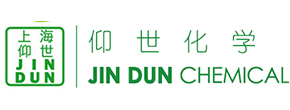Denmark is developing offshore wind power will help boost the EU's energy transition
2023/7/6
The European North Sea is not a large area, but it is surrounded by rich European countries and is economically important. The North Sea is accelerating towards its second energy life. Oil and gas drove the already well-established economies of Denmark, the Netherlands, the UK and Norway (especially Norway) from the 1970s to the 1990s. The foreseeable trend today is that the future is not underwater, but above water. Obviously, the general direction of the economy will follow the "wind". Whether these old economic powerhouses can succeed again in this unprecedented gamble will largely determine whether the EU-27 can achieve its decarbonization and energy autonomy goals on time.
Whatever the rhetoric of oil and gas proponents, fossil fuels will look more like decaying "fossils" than ever before, led by companies that are still effectively dependent on oil exploration and production, and will be retired from the scene much more quickly than people think. The energy world is being turned upside down, even more so since Russia went to Ukraine, as the conflict exposed the enormous risks of relying on resources beyond Europe's control. The small country of Denmark - with just 6 million inhabitants, an area of less than 43,000 square kilometers and a per capita income of 67,000 euros - has become a particular witness to this irreversible and accelerating transformation. It is a historic transformation from black to green, from the past to the future.
"We want to be a significant source of green power for the whole of Europe." So said Dan Joensen, Denmark's then Energy Minister, in the early stages of the Ukrainian crisis. Only 20 years after the inauguration of its first offshore wind farm, the country that, together with neighbors Sweden and Norway, is a leader in raising public awareness of climate issues (global warming has always been at the top of citizens' concerns in its opinion polls) clearly understands that the time has come to accelerate action. It is not enough to simply green the country's power generation matrix: its ultimate goal is to become an important battery for the European Union, a status rivaled only by the Iberian Peninsula, which receives sunlight all year round.
The scale of the plans developed in Denmark would seem unimaginable to Spain, where the topography (deeper water in the inshore waters) makes it difficult to anchor offshore turbines to the sea bed. But in the North Sea, this problem does not exist: the North Sea is shallow and the wind gusts are strong and long-lasting. This is a perfect breeding ground for a technology that has not yet reached maturity but has already produced very significant results to flourish. What's more, the project is still in its infancy: Denmark's roadmap calls for a tripling of installed capacity by 2030 compared to the past.
By the end of this decade, offshore wind will generate more than 40% of electricity demand, and this will be completely renewable. The remaining power will be sold to other European countries, as Denmark is just a step away from Germany, the Netherlands and Belgium. The possibilities for Denmark to reach out to its partners and do business with the surplus electricity are unprecedented. By 2050, wind turbines will have peaked in the North Sea, not only in Denmark, but also in other EU countries around the North Sea, and will then be sufficient to meet the electricity needs of some 300 million households.
JIN DUN CHEMICAL has built a special (meth) acrylic monomer manufacturing base in ZHEJIANG province. This makes sure the stable supply of HEMA, HPMA, HEA, HPA, GMA with high level quality. Our special acrylate monomers are widely used for thermosetting acrylic resins, crosslinkable emulsion polymers, acrylate anaerobic adhesive, two-component acrylate adhesive, solvent acrylate adhesive, emulsion acrylate adhesive, paper finishing agent and painting acrylic resins in adhesive.We have also developed the new and special (meth) acrylic monomers and derivatives. Such as the fluorinated acrylate monomers, It can be widely used in coating leveling agent, paints, inks, photosensitive resins, optical materials, fiber treatment, modifier for plastic or rubber field. We are aiming to be the top supplier in the field of special acrylate monomers, to share our rich experience with better quality products and professional service.

